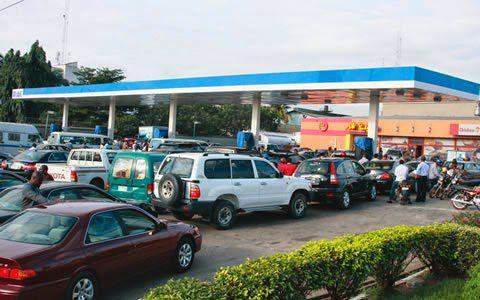A fuel scarcity crisis grips the Nigerian states of Edo and Delta, following long queues and sudden price hikes at filling stations. Reports indicate that the fuel pump price now fluctuates between N400 and N500 in both states, with a few petrol stations selling at rates as high as N520 per litre.
NAN Correspondents who monitored the fuel situation in the region observed that many filling stations in Benin metropolis and Asaba Township were closed for business while the stations that remained open had long queues of frustrated customers.
The sudden surge in demand and prices followed President Bola Tinubu’s announcement of the fuel subsidy’s removal at his inauguration as Nigeria’s 16th President on Monday in Abuja.
The relatively low price of N190 to N200 per litre could be found at a few independent fuel providers, such as NNPC Mega Station in Benin. Still, it often resulted in long queues. Otherwise, independent fuel vendors across the states increased prices and charged between N450 and N500 per litre. Motorists complain they are struggling to obtain fuel and face economic hardship due to transport fares’ increase of 100%.
The scarcity situation forces motorists and customers to rely on few filling stations, leading to long queues, dissatisfaction, and frustration.
A Benin city motorist, Evelyn Boswell, lamented, “if the scarcity persists, children may be unable to get to school. Furthermore, many individuals and businesses face extreme difficulty gravely affecting daily productivity levels.”
Meanwhile, the Federal Government has been asked to speedily intervene and resolve the crisis to manage the situation. The removal of fuel subsidies is a positive development; however, Nigerians may undoubtedly suffer economic hardship due to the timing of the policy implementation at a time when citizens are still reeling from economic contractions impacted by the COVID-19 pandemic.
Nigerians have appealed to the government to boost the availability and affordability of fuel for its citizens, as long-term measures are put in place to stabilize the country’s fuel supply chain operations.
